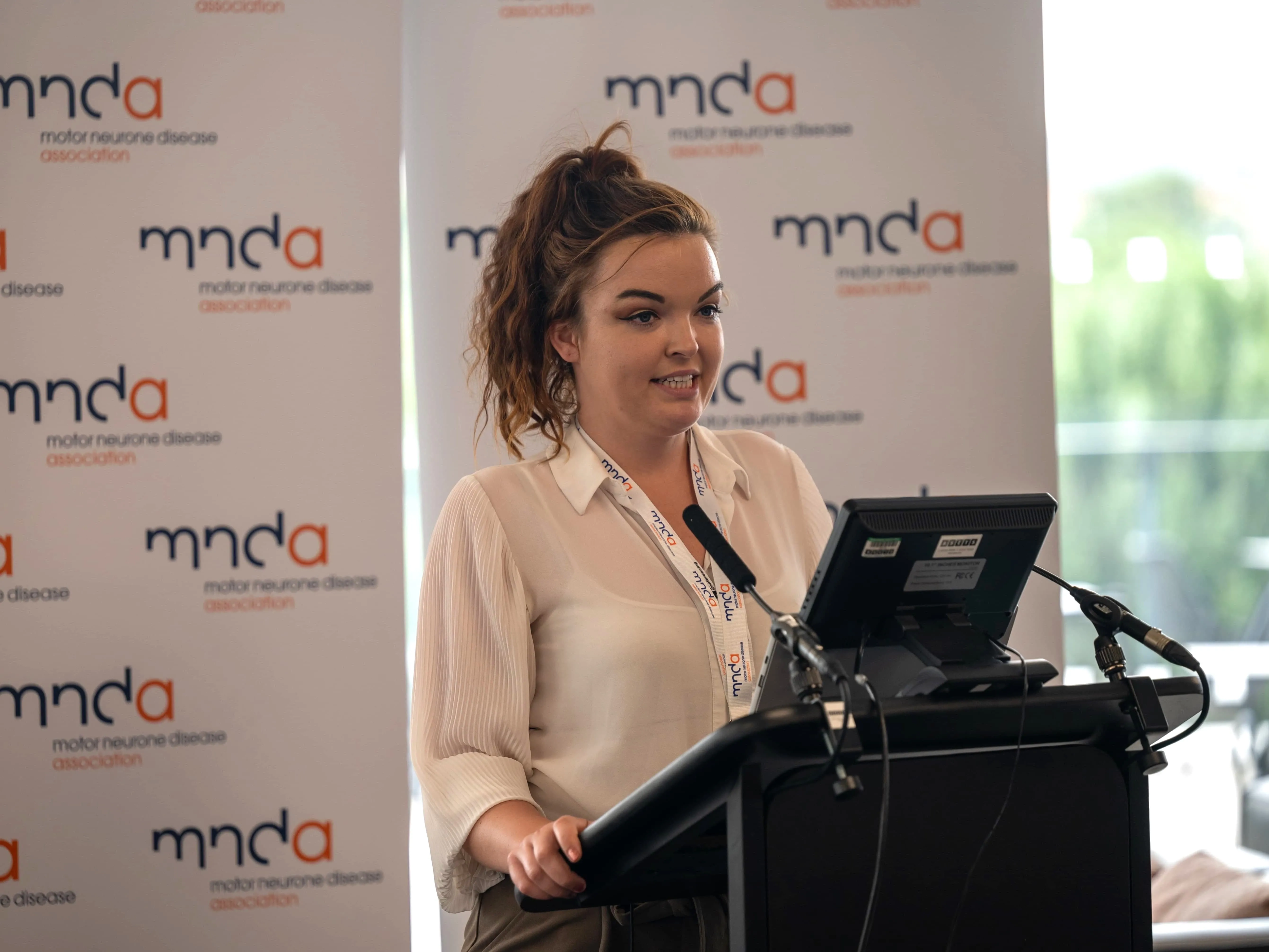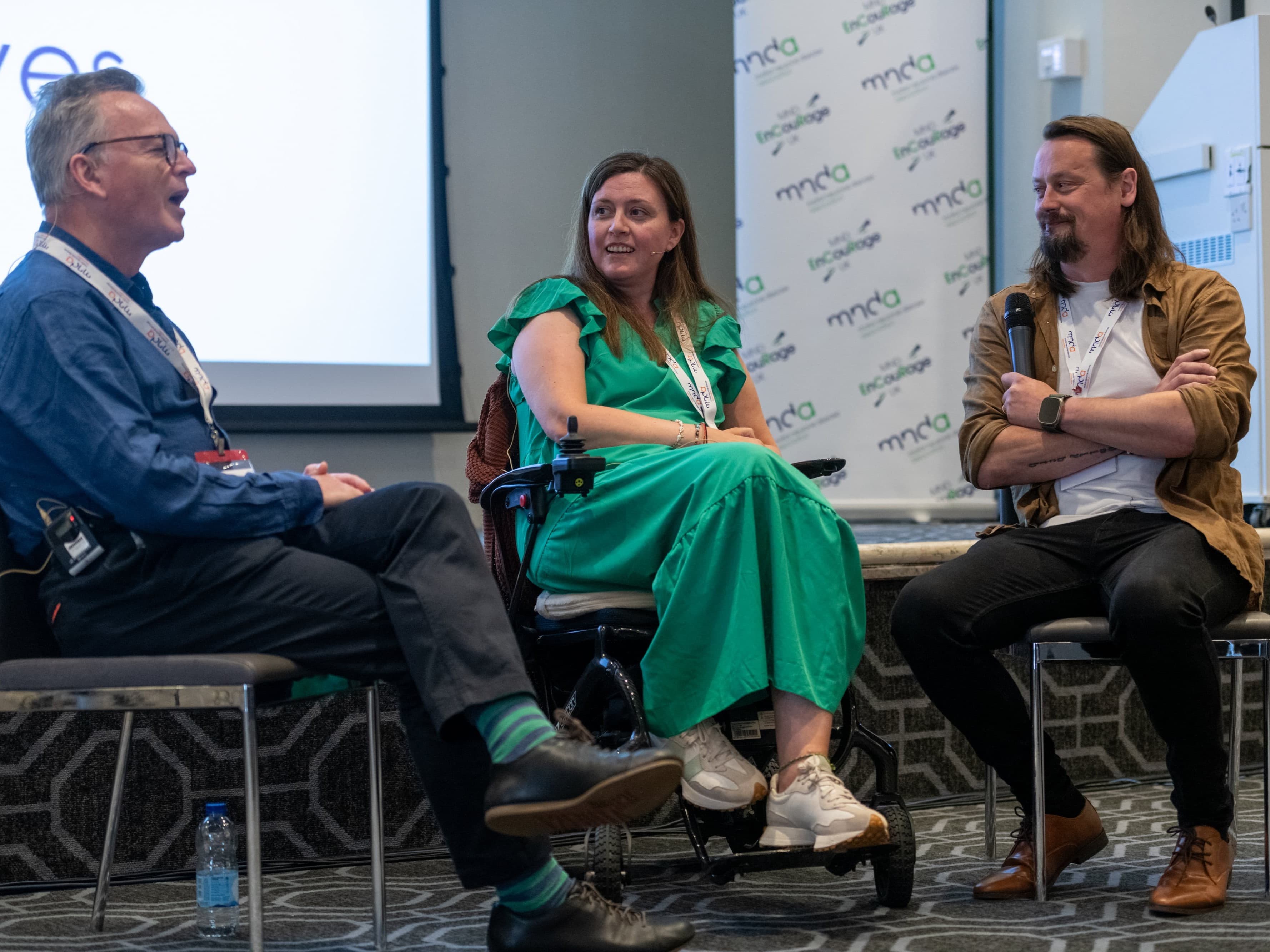Dr Roisin McMackin is an Assistant Professor in the Discipline of Physiology at Trinity College, Dublin and is funded through the MND Association’s Lady Edith Wolfson Fellowship Programme. She graduated from Trinity College in 2016 with a first-class honour's degree in science, specialising in Neuroscience. In 2021 she was awarded a PhD in Clinical Medicine and in 2023 began her role as Assistant Professor.
We caught up with Roisin to chat about the MND fellowship scheme, her research, interests, aspirations, and future MND research.
What does it mean to be part of the MND Association Fellowship scheme?
The MND Association Junior Non-Clinical Fellowship has enabled me to develop my independence as a researcher, and to generate important new findings which can improve our understanding of what MND does to brain networks. The scheme allowed me to build upon the MND research I performed during my PhD, but also really helped to accelerate my career development. The progress of my research, funded by the MND Association, enabled me to be competitive in applying for an Assistant Professorship in 2023, even though I had only finished my PhD 2 years earlier. Then, when I was offered the position, the MND Association were extremely supportive and delighted to continue supporting my research as a Principle Investigator. My Fellowship funding allowed me to begin to grow my own team, and now it not only supports my research, but has also attracted two very talented young female researchers into the field of MND research. Generally, I feel that being funded by the MND Association is like being part of a really supportive, encouraging family of researchers.
What is the aim of your research project?
My project involves searching for measurements of brain function which can predict symptoms that people with MND will experience, and improve understanding of why MND affects people in such different ways. These differences are a problem because they may reflect different people having different subtypes of MND, which require different treatments. We also might not realise that a potential treatment being tested is working, because we cannot predict how the disease would have progressed without the drug. We urgently need to better understand what is going on in the brain to drive this variation across those affected.
People with MND experience movement-related symptoms, but can also experience problems with behaviour, language, and cognition (such as difficulty planning, paying attention or controlling their actions). We know these non-movement issues can help predict severity of the disease, indicating we shouldn’t focus only on the movement controlling areas of the brain when measuring MND. For this reason, we are taking a variety of measures of movement and non-movement controlling areas of the brain in people with MND, to determine what parts of the brain are or are not functioning properly over time in each individual. At the same time, we are measuring the movement and non-movement symptoms these people are experiencing. We are looking for patterns in changes to the brain that predict these symptoms and the severity of MND in each person. This method of measuring brain function could enable more specific medical information to be given to each person with MND about what they will experience and could improve detection of effective therapies in clinical trials.
What’s your greatest hope for your research and where it could lead?
My greatest hope for this research is that it will make a real difference to the lives of those with MND. Specifically, I hope this research will identify a simple, non-invasive, non-painful set of tests that can detect MND and its subtypes. These tests could be used for people who come to hospital with early signs of MND, or who are genetically at risk of getting MND, so these can be detected earlier, a more specific prognosis or subtype could be diagnosed, and the effectiveness of potential drug therapies could be tested using these measurements.
How encouraged are you by the progress being made in MND research?
Since I started working on MND research I’ve seen many examples of early findings being translated into new tools to help those with MND or new potential therapies. To see that now in some genetic subtypes of MND that the disease has been halted, or potentially even reversed, is so fantastic. My own research has gathered so much momentum and we are working towards translating our findings into clinical tools quite soon! What is quite clear to me is that collaborating, exchanging ideas, and combining expertise is essential to understanding this complex disease, and if we all continue to be open to merging ideas and datasets, I believe more exciting breakthroughs will come soon.
If you weren’t a scientist, what would you be doing instead?
Probably working with horses, but it’s easy to daydream about doing that in the summer! I’d much prefer to be inside analysing data on a stormy winter evening with a cup of tea in hand.
What is your favourite science joke?
“Two blood cells met and fell in love, but it was all in vein.”


